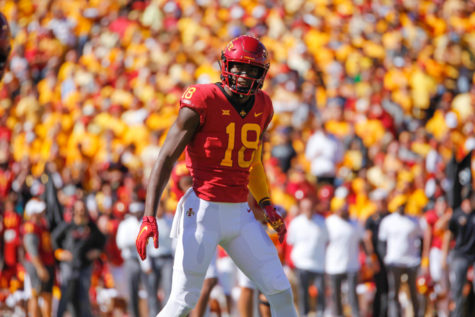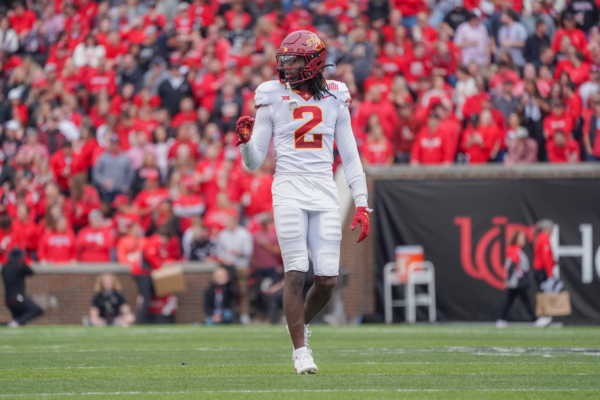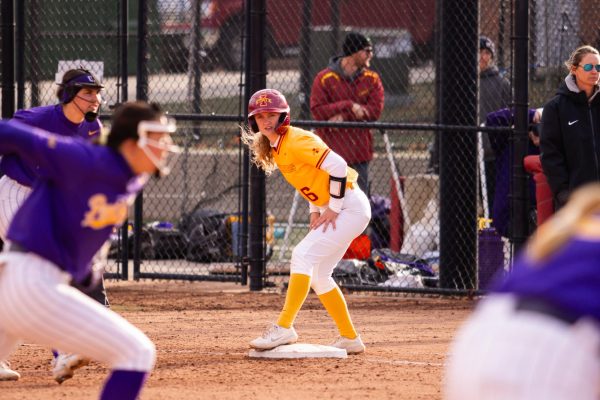Sports world still as frivolous as it has always been
September 11, 2002
Let’s hope, now that sports are in perspective, we keep them there.
Rick Reilly, Sports Illustrated, Sept. 26, 2001
There will be much patriotism today on America’s sports fields, enough to make the postmodern young American snarl his upper lip and perhaps say something ironic.
And perhaps he should.
Because today, media and players and team presidents alike will carry on about how sport has changed since last year.
But it hasn’t. It hasn’t changed in the least. Sport is just as greedy, self-aggrandized and out of touch with reality as it was on Sept. 10, 2001.
After the attacks, it took a while, of course, for sport to return to its ways. But it did.
By November, Randy Moss – who had recently signed an eight-year, $75 million contract extension with the Minnesota Vikings, which included an $18 million singing bonus – told America he played football when he felt like playing football.
Sept. 11 awoke in me a truth I doubt Randy Moss will ever acknowledge.
Sport is frivolous. Always has been.
Sandy Koufax knew this.
In 1965, he skipped his scheduled Game 1 start for the Dodgers in the World Series because it fell on Yom Kippur.
And Koufax wasn’t even an observant Jew.
Would this happen today? No. No it would not.
And that has nothing to do with today’s Jewish athletes.
Because many are the devout Christians who play on Christmas Day, Easter Sunday – any Sunday for that matter.
No one would, because, for today’s athletes (re-wording a line from Sen. John McCain) there is no cause greater than their sport’s self-interest.
The narrowly avoided baseball strike proved this.
And to a lesser extent, Tiger Woods did.
Martha Burk, head of the National Council of Women’s Organizations, wrote Hootie Johnson, chairman of Augusta National Golf Club, in June.
She asked him to admit the club’s first woman member. Hootie more or less refused.
(It should be noted that it was 1990 before Augusta National admitted its first black member.)
Tiger, who has won the Masters three times and had no problem telling the world in 1997 via a Nike commercial that there were still courses he couldn’t play on, more or less denied to comment on the Burk issue.
Why? Maybe for the same reason Michael Jordan never told Nike to quit hiring 7-year old Taiwanese kids to make his Air Jordans: he speaks out, the endorsers quit endorsing.
Maybe that’s the case, though that answer is easy to come by and rather clich‚d.
Maybe today’s athlete just doesn’t have the societal wherewithal to elicit a lucid point on an issue outside the shroud of athletics he lives in.
If the draft were reinstated, would there have been athletes who, because of principle, refused to fight in Afghanistan much as Muhammad Ali refused to fight in Vietnam?
If there were athletes who disagreed with the war on terrorism, nothing in public was said about it.
And maybe nobody disagreed with the fighting. I certainly didn’t.
However, the days of athletes disgruntled with society and not their contracts are over.
I don’t want to blame the athletes entirely, though.
Britney Spears isn’t writing songs about the Israeli-Palestinian conflict, or the near imminent invasion of Iraq.
(And I shudder to think that she would. I shudder thinking about her just writing.)
The media should take as much blame as anyone.
Long since the home of all things exaggerated, sports journalism found itself in a unique spot after the attacks: When does one delve once more into hyperbole?
The examples at this point are too numerous to list.
Suffice it to say, I heard an announcer during the final round of the PGA Championship on CBS call a 20-foot putt on the back nine by eventual winner Rich Beem “courageous.”
No, sports’ perspective hasn’t changed.
But I think mine has.
Paul
Kix
is a senior in journalism and mass communication from Hubbard.
















